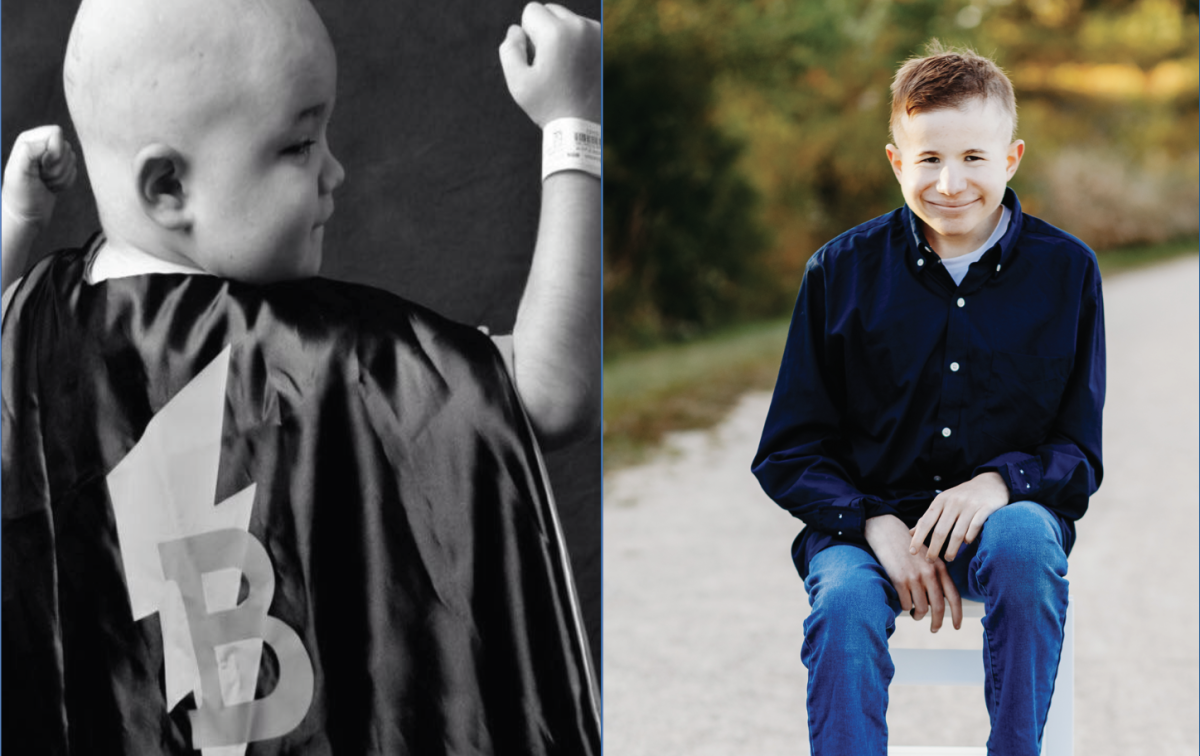At Daley Plaza in Chicago on Sept. 7, hundreds sat cross-legged on the pavement like one gigantic kindergarten class during story time. Their eyes were glued onto the woman at the microphone, attention rapt.
To an outsider, it might have seemed like there was a dress code, or rather, a lack-of-dress code. There was little distinction between what men and women wore. Some men wore fishnets, pleather vests and platform shoes like women. Just like men, some women walked around topless.
This was Chicago’s second annual SlutWalk. The message: how a woman dresses is never a reason to commit acts of sexual violence against her. The SlutWalk movement started in April 2011 in Toronto when a policeman suggested that if women don’t want to be victimized, they shouldn’t dress like sluts, according to Phaydra Babinchock, director of SlutWalk Chicago. This comment sparked a series of protests around the world in which men and women expressed their contempt for sexual violence and the rape culture that surrounds it.
At the edge of the crowd, 20-year-old Sarah Fox (name has been changed to protect identity) wore a white T-shirt with “rape survivor” written in blue marker. At a frat party one year ago, Fox, then a student at Northern Illinois University, was slipped roofies and gang-raped by eight of her male peers. Initially, Fox kept the assaults to herself.
“I was really alone for a long time,” Fox said.
According to Jodi Raphael, one of the speakers at SlutWalk and author of a book called Rape is Rape, there has been no increase in rape reporting since the 1990s. One of the reasons a victim chooses to not report a rape is that they fear they will be blamed for putting themselves in the situation or prompting the attack, Raphael said. This idea exists under the umbrella of “slut-shaming,” or, colloquially, the “she was asking for it” phenomenon.
“Through history, the women have always been blamed,” Raphael said. “Even in stories in the Bible, women are always the seducers. It’s almost like we’re wired in this way.”
When she started counseling a few months after she was raped, Fox only remembered one out of eight of the assaults, she said. As time went on, she remembered more and more about that night and blamed herself less and less. Fox said that SlutWalk is about finding unity with hundreds of fellow survivors and supporters who understand that the victim is never to blame.
Two of those supporters were sisters Molly and Emily McQueen. Although neither of the sisters is a victim of sexual violence, both still consider themselves to be victims of slut-shaming.
“I’ve been stopped in jeans and a hoodie and somebody asked ‘how much?’” Emily said. “I don’t think there’s a girl that doesn’t, at some point, experience slut-shaming. It’s part of our lives and that’s why it sucks.”
Although 30-year-old Emily didn’t realize it when she was a teenager, her exposure to slut-shaming dates back to high school, she said. People used the word “slut” to degrade a girl for anything from dressing provocatively to being sexually active with multiple people.
Slut shaming in High School
At South, slut-shaming exists behind the scenes, junior Emily Horvath said. Mostly, it exists in the whispers shared between friends when they pass by a girl whose shorts strike them as too short or whose shirt exposes too much of her midriff, Horvath said.
Other times, a rumor may start about a girl “hooking up” with multiple guys that spreads person by person through the interconnected web of social groups and activities. The “slut” label is often slapped onto someone without much thought, Horvath said.
But for senior Jenna Brown (name has been changed to protect identity), the more times she was called a “slut,” the harder it was to shake off the label.
In middle school, Brown became the “go-to” girl for her male friends to have their first kiss. As her girl friends shunned her for her behavior, the boys continued to send her text messages on Friday nights, expecting that she comply with their requests.
“I became the slut of our friend group and [the boys] thought they could come to me when they wanted to hook up,” Brown said. “I knew that, and I hated that, but at the same time I knew it meant that I was wanted.”
For Brown, there were two choices: keep up her “easy” reputation or lose her friends. As an insecure middle schooler, Brown chose the former. But in high school, she immediately saw the error in her thinking and sought a new social circle. Despite a new identity, in the eyes of her middle school friends, she is still thought of as a “slut.”
The Male Perspective
There are no male “sluts,” sophomore Troy Wilson said. Only “ballers” or “players” or guys with “swag.” At South, guys are often congratulated for promiscuity while girls are shamed for it, Wilson said.
In general, the reputation for girls at South who dress provocatively or choose to “hook up” with many people is 100 percent negative, sophomore Clayton Nimz said. If one of his male friends were to express interest in dating a girl like that, it’s customary to issue a warning, something like, “Look out dude, she’s slutty,” Nimz said.
“If a guy wants to hook up with a girl, he doesn’t want to be just another guy that hooks up with her,” Nimz said. “It’s a pride thing, like, ‘I got her and you guys didn’t.’”
Wilson ultimately supports how a girl chooses to dress or behave, as long as she isn’t hurting herself or others, Wilson said. Although there is certainly a standard for public decency, there is no reason a guy should feel inclined to yell slurs at women on the street or from a car or in the hallway; that kind of harassment indicates stupidity and senseless macho-ism, according to Wilson.
“If she says, ‘I’m comfortable this way,’ then good for her,” Wilson said. “She can live how she wants. She can do whatever she wants.”
If a girl breaks the trust of her partner by being promiscuous with other people, Wilson would step up to tell her that what she’s doing is wrong, forming his words methodically and sensitively. But when Wilson hears students calling his friends “sluts” or spreading rumors about their sexual lives, he is quick to reprimand them.
At SlutWalk Chicago, men attended as allies or victims of sexual assault themselves. Steve Adler, prevention education specialist at Rape Victim Advocates (RVA) in Chicago and a SlutWalk speaker, recognizes how difficult it can be for men and women to defend victims of rape and slut-shaming: the women are targeted as “sluts” and the men as “fags,” according to Adler.
“We need to break out of the ‘man box’ and support survivors of sexual violence,” Adler said. “We need to be allowed to be vulnerable, sensitive and caring. We need to be able to speak up against sexism, homophobia, and transphobia without our ‘maleness’ being called into question.”
However, at South, girls tend to use the word “slut” just as much, if not more, than guys, Horvath said. According to Raphael, women slut-shame other women to convince themselves that they are in control of their situation; if sexual assault can be blamed on what the victim wears or how much she drinks, it’s easier for women to feel that rape won’t happen to them.
One solution Raphael suggests is that parents encourage their daughters to report sexual violence and to not feel ashamed. For young men and women, Adler advises looking inwards at the beliefs they hold surrounding gender and sexuality and question why they hold said beliefs.
“The movement to end rape and other gender-based violence was started by people who weren’t necessarily aligned with any formal organizations,” Adler said. “Forty years ago, rape crisis and domestic violence centers didn’t really exist. […] These were people in their communities who saw a problem and rallied together to voice their concerns and make an impact.”







